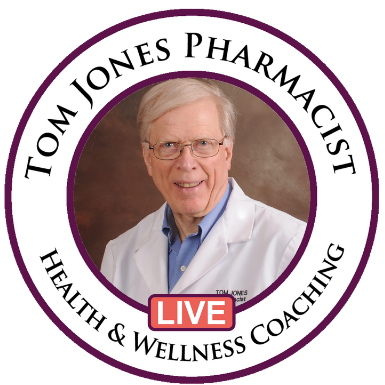
Here are 20 health facts and tips with some reasons why they are important:
Here are 20 health facts and tips with some reasons why they are important:
Walking barefooted on grass is good for health. It can help reduce stress, improve blood circulation, and stimulate acupressure points on your feet1.
Sunbath to get vitamin D. Vitamin D is essential for bone health, immune function, and mood regulation. Sun exposure is the best natural source of vitamin D, but you should limit it to 10–15 minutes a day and use sunscreen to prevent skin damage
Laughter is the best medicine. Laughing can boost your immune system, lower your blood pressure, reduce pain, and improve your mental health. It can also burn calories and strengthen your abdominal muscles
Lack of exercise leads to chronic disease. Physical inactivity is a major risk factor for obesity, type 2 diabetes, heart disease, stroke, and some cancers. Regular

exercise can help prevent these diseases and improve your quality of life
People with good social circle live longer. Having strong social connections can lower your risk of depression, anxiety, dementia, and premature death. It can also provide emotional support, practical help, and a sense of belonging
Limit sugary drinks. Sugary drinks like sodas, fruit juices, and sweetened teas are the primary source of added sugar in the American diet2. They can increase your risk of weight gain, type 2 diabetes, heart disease, and tooth decay. Healthier alternatives include water, unsweetened teas, sparkling water, and coffee
Eat nuts and seeds. Nuts and seeds are incredibly nutritious. They are packed with protein, fiber, healthy fats, and a variety of vitamins and minerals2. Nuts and seeds may help you lose weight and reduce the risk of developing type 2 diabetes and heart disease
Avoid ultra-processed foods. Ultra-processed foods are foods containing ingredients that are significantly modified from their original form. They

often contain additives like added sugar, highly refined oil, salt, preservatives, artificial sweeteners, colors, and flavors
ThUltra-processed foods are highly palatable. This meaning they are easily overeaten, and activate reward-related regions in the brain, which can lead to excess calorie consumption and weight gain2. They can also contribute to obesity, type 2 diabetes, heart disease, and other chronic conditions
Don’t fear coffee. Coffee is loaded with health benefits. It’s rich in antioxidants, and some studies have linked coffee intake to longevity and a reduced risk of type 2 diabetes, Parkinson’s and Alzheimer’s diseases, and numerous other illnesses2. The most beneficial intake amount appears to be 3–4 cups per day
Your heart beats about 100,000 times a day. That’s about 35 million times a year or more than 2.5 billion times in an average lifetime
Your heart pumps about 2,000 gallons of blood every day or about 1.5 million barrels in a lifetime — enough to fill 200 train tank cars3.Your

heart size is about the same as your fist. An adult heart weighs about 10 ounces (283 grams), while a child’s heart weighs about as much as a large chicken egg (70 grams)
Your heart is located in the center of your chest between your lungs — not on the left side as many people think. Your heart can continue beating even if it’s separated from your body. This is because your heart has its own electrical system that controls the rate and rhythm of your heartbeat
However, without oxygen from blood flow or an artificial source such as a pacemaker or defibrillator device , your heart will eventually stop beating3.Your heart rate changes throughout the day. Your heart rate depends on many factors such as your age , activity level , emotions , medications , body position , and even the time of day
Your resting heart rate is very important.— The number of times your heart beats per minute when you’re at rest — is usually between 60 and 100 beats per minute for adults , but it can be lower for athletes or higher for people with certain medical conditions
Drink plenty of water every day to stay hydrated and flush out toxins.

Water is essential for your body to function properly and regulate your temperature. Drinking water can also help you feel full, boost your metabolism and prevent headaches.
Eat a balanced diet that includes a variety of fruits, vegetables, whole grains, lean proteins, healthy fats and low-fat dairy products. A balanced diet can provide you with all the nutrients you need for your health and growth. Eating a variety of foods can also help you prevent deficiencies, lower your cholesterol and blood pressure and reduce inflammation.
Avoid processed foods, added sugars, trans fats, artificial sweeteners and preservatives as much as possible. Processed foods are often high in calories, sodium and chemicals that can harm your health. Added sugars can cause weight gain, diabetes and tooth decay. Trans fats can raise your bad cholesterol and increase your risk of heart disease. Artificial sweeteners and preservatives can affect your appetite, mood and digestion.

Limit your intake of caffeine, alcohol and nicotine, This will affect your mood, sleep quality and overall health. Caffeine can make you jittery, anxious and dehydrated. Alcohol can impair your judgment, liver function and immune system. Nicotine can damage your lungs, blood vessels and brain.
Exercise regularly for at least 30 minutes a day, five times a week. Choose activities that you enjoy and that suit your fitness level and goals. Exercise can improve your physical and mental health by strengthening your muscles, bones and heart, burning calories, releasing endorphins and reducing stress.
Get enough sleep every night, ideally between seven to nine hours. Follow a consistent bedtime routine and avoid screens, caffeine and heavy meals before bed. Sleep is vital for your body and mind to rest, repair and rejuvenate. Getting enough sleep can improve your memory, concentration, mood and immunity.
Manage your stress levels Practicing relaxation techniques such as deep breathing, meditation, yoga or massage.
Seek professional help if you feel overwhelmed or depressed. Stress can negatively affect your health by increasing your blood pressure, heart rate and cortisol levels. Relaxation techniques can help you calm down, lower your blood pressure and heart rate and release tension
 Add Row
Add Row  Add
Add 




Write A Comment